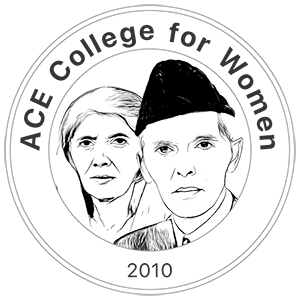Determination of Immune Response Traits in Nigerian Indigenous Chickens Challenged with Newcastle Inactive Antigen
| Received 18 Dec, 2021 |
Accepted 11 Mar, 2022 |
Published 18 Aug, 2022 |
Background and Objective: The selection of genotypes and choice of breeding programmes are pivotal determining tools for the improvement and sustain ability of poultry production. This study determines the immune response of Newcastle inactive antigen with immunological traits in the Nigerian Indigenous Chicken (NICs). Materials and Methods: Seventy-six chicks consisting of normal feathered high titre, normal feathered low titre, frizzle feathered high titre, frizzle feathered low titre, naked-neck high titre and naked-neck low titre were used to study the immune response traits after being challenged with Newcastle disease vaccine (LaSota) on 7th post challenged. Blood was collected on the 14th, 21th and 28th days Post-Inoculation (PI) to investigate haemagglutination inhibition. Blood samples collected on the 28th day were used for haematological and biochemical parameters. The data collected were analyzed using the general linear model in SAS 9.2. Results: Genotype-antibody titre and sex had significant effects (p<0.05) on haemagglutination inhibition at 14th, 21st and 28th days PI. Frizzle feathered high titre, naked-neck high titre and normal feathered high titre chicks (6.95±0.30, 7.33±1.45 and 7.71±0.47), respectively had higher haemagglutination inhibition than normal feathered low titre chicks across the days of post-inoculation. Haematological parameters were not affected (p>0.05) by genotype-antibody titre and sex except for eosinophils and white blood cells, while biochemical indices were not (p>0.05) affected by genotype-antibody titre and sex on the 28th day old. Conclusion: The present study establishes reference values that may contribute to the assessment of chicken health for selection in the breeding programme.
How to Cite this paper?
APA-7 Style
Akinbinu,
A.J., Adenaike,
A.S., Jegede,
O.A., Opoola,
M.A., Akutubuola,
N.I., Jegede,
A.V., NIkeobi,
C.O. (2022). Determination of Immune Response Traits in Nigerian Indigenous Chickens Challenged with Newcastle Inactive Antigen. Trends in Agricultural Sciences, 1(1), 35-44. https://doi.org/10.17311/tas.2022.35.44
ACS Style
Akinbinu,
A.J.; Adenaike,
A.S.; Jegede,
O.A.; Opoola,
M.A.; Akutubuola,
N.I.; Jegede,
A.V.; NIkeobi,
C.O. Determination of Immune Response Traits in Nigerian Indigenous Chickens Challenged with Newcastle Inactive Antigen. Trends Agric. Sci 2022, 1, 35-44. https://doi.org/10.17311/tas.2022.35.44
AMA Style
Akinbinu
AJ, Adenaike
AS, Jegede
OA, Opoola
MA, Akutubuola
NI, Jegede
AV, NIkeobi
CO. Determination of Immune Response Traits in Nigerian Indigenous Chickens Challenged with Newcastle Inactive Antigen. Trends in Agricultural Sciences. 2022; 1(1): 35-44. https://doi.org/10.17311/tas.2022.35.44
Chicago/Turabian Style
Akinbinu, A., J., A. S. Adenaike, O. A. Jegede, M. A. Opoola, N. I. Akutubuola, A. V. Jegede, and C. O. NIkeobi.
2022. "Determination of Immune Response Traits in Nigerian Indigenous Chickens Challenged with Newcastle Inactive Antigen" Trends in Agricultural Sciences 1, no. 1: 35-44. https://doi.org/10.17311/tas.2022.35.44

This work is licensed under a Creative Commons Attribution 4.0 International License.


